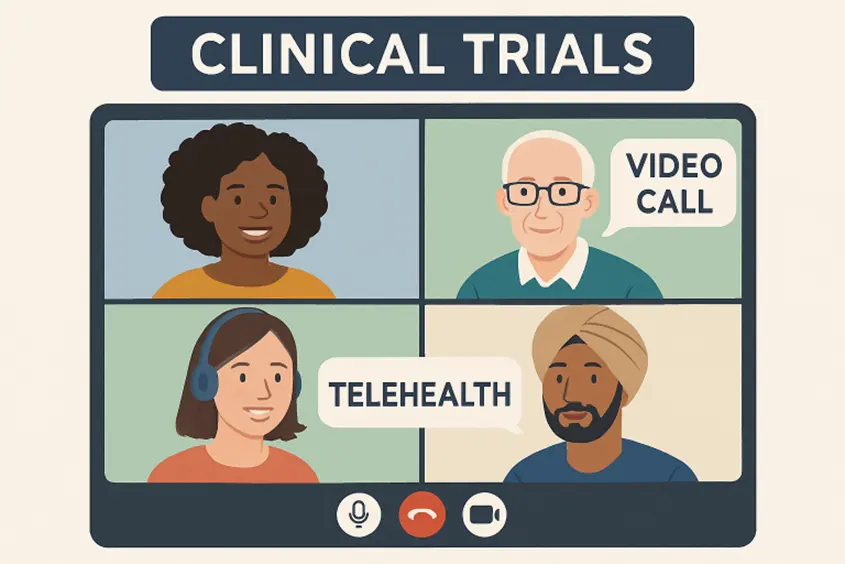The Evolving Role of Patients in Clinical Trials
The role of patients in clinical trials has shifted from passive participants to active partners who influence design, implementation, and outcomes. This change supports patient-centered care, making trials more relevant, inclusive, and compassionate. Giving patients a voice leads to better results, higher participation, and faster development of therapies for diverse communities.
For decades, clinical trials served as the backbone of medical innovation, yet only a small fraction of eligible patients ever participated. Barriers such as geography, lack of awareness, and complex logistics limited the reach and representativeness of these vital studies. Today, revolutionary shifts are making clinical research and trials more accessible and convenient for a broader, more diverse population.
Technology, policy, and patient-focused strategies are transforming clinical research by enabling remote participation and promoting inclusivity. These changes help accelerate breakthroughs, improve treatments, and better serve communities. Privacy and data security remain crucial, with regulations like HIPAA and secure platforms building trust and encouraging involvement.
Technological Innovations Enhancing Accessibility
The integration of digital technologies is streamlining every aspect of clinical trial participation. Virtual platforms, electronic consent processes, and mobile health applications allow patients to enroll and participate remotely, removing the burden of constant travel and clinic visits. Wearable devices are empowering participants to track and report health data in real time, enhancing data accuracy while supporting convenience and safety.
Institutions such as the Mayo Clinic are pioneering these advances, utilizing digital innovations to enhance the reach and effectiveness of their clinical trials. This more flexible approach has opened up opportunities for those in rural and underserved communities who previously faced prohibitive travel distances or conflicting schedules. Broader representation ensures research results are more applicable to everyday clinical practice.
Decentralized Clinical Trials: A New Paradigm
The rise of decentralized clinical trials (DCTs) has shifted the traditional research model from centralized hospitals to local settings. By partnering with pharmacies, community health centers, and even major retail stores, DCTs make participation simpler and less daunting for patients. Organizations like Walgreens and Walmart are leveraging their vast physical networks to make trials available in everyday settings, further removing barriers to access and expanding the pool of potential participants.
This decentralized approach reduces costs, improves convenience, and delivers a more human-centered patient experience. It also fosters better relationships between clinical research organizations and the communities they serve, as studies can be better tailored to meet local health challenges and priorities.
Policy Initiatives Promoting Diversity
Recognizing persistent disparities in clinical trial participation, regulatory authorities like the U.S. Food and Drug Administration (FDA) are implementing policies to bolster diversity. Guidance issued in recent years urges pharmaceutical companies and medical device makers to set measurable goals for enrolling participants across age, sex, race, and ethnic groups.
These policies not only require justification for underrepresentation but also ask sponsors to lay out strategies for reaching and enrolling a more diverse population. The hope is that, as trial populations become more reflective of real-world patients, approved therapies will be safer and more effective for all who need them.
Educational Campaigns to Raise Awareness
Awareness remains a key hurdle for clinical trial participation; many patients are still unaware of relevant studies or the benefits of involvement. To overcome this, educational campaigns like “Clinical Trials For All” have emerged, aiming to increase understanding and address misunderstandings about risks, purpose, and the importance of diverse participation.
By partnering with patient advocacy organizations and leveraging targeted outreach, these campaigns are helping people recognize the personal and societal value of contributing to research. Greater awareness leads to more volunteers, which, in turn, enhances the scientific rigor and equity of medical innovation.
Patient-Centered Approaches Improving Retention
Retention of participants is just as crucial as recruitment. Patient-centric approaches—offering compensation for travel and time, streamlining communication, and minimizing disruption to daily life—are proving effective in keeping volunteers engaged throughout the entire trial process.
Studies show that nearly all participants (97%) appreciate reimbursement and that clear, responsive communication increases trust and willingness to see a trial through to completion. Minimizing the burden of participation boosts satisfaction while enhancing data completeness and study outcomes. Strong retention strategies also reduce costly delays and the need for additional recruitment, helping trials stay on schedule. When patients feel respected and supported, they are more likely to remain committed, even in longer or more demanding studies. Ultimately, prioritizing participant well-being not only benefits individuals but also drives more reliable and impactful medical discoveries.
Artificial Intelligence Streamlining Recruitment
Artificial intelligence is dramatically accelerating the identification and matching of eligible patients to clinical trials. AI-powered platforms quickly analyze electronic health record data to identify those who qualify, overcoming the slow and often inefficient manual processes of the past. These breakthroughs increase recruitment and ensure more equitable access by surfacing opportunities for hard-to-reach groups.
Large language models and sophisticated algorithms are helping researchers personalize outreach, match patients more precisely to relevant studies, and optimize enrollment. The intersection of technology and patient care in recruitment is fueling a new era of more inclusive and efficient clinical trials.
Conclusion
The evolution of clinical trials is ultimately a story about empowering patients. With technological advances, thoughtful policies, educational outreach, and AI-driven insights, clinical trials are shedding traditional barriers and becoming a more inviting, inclusive, and impactful part of modern medicine. As these changes take root, they promise a future where medical research is more efficient and representative and better equipped to improve health outcomes for all.
Also Read-Why Businesses Prioritise Corporate Insurance in Singapore Today

